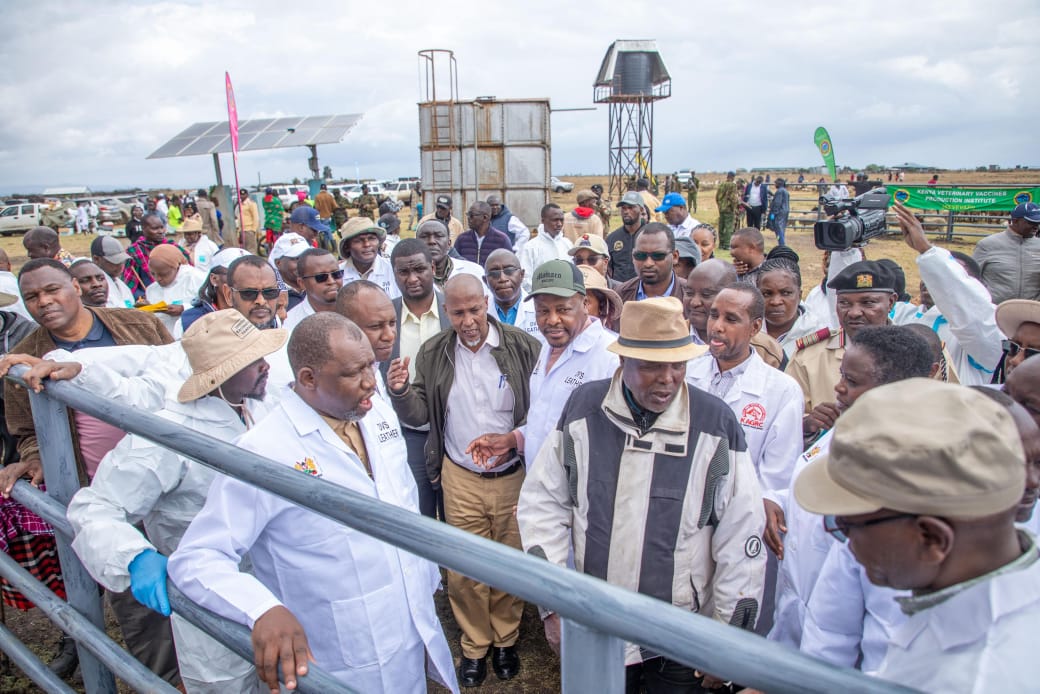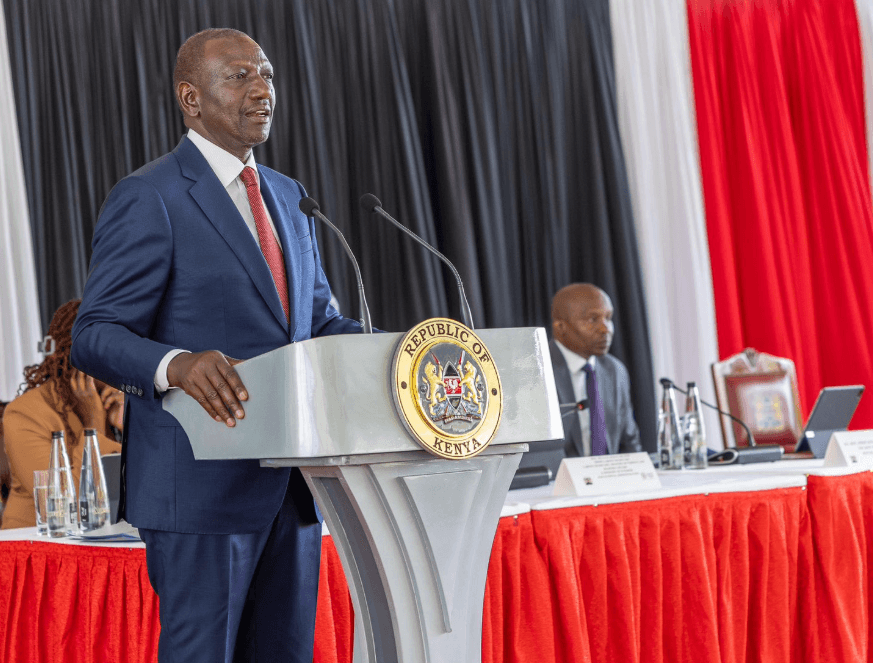
 Agriculture CS Mutahi Kagwe during the vaccination of cows
at Kisargegei livestock holding ground in Laikipia county
on Thursday /KNA
Agriculture CS Mutahi Kagwe during the vaccination of cows
at Kisargegei livestock holding ground in Laikipia county
on Thursday /KNA
In October 2024, the government launched a national campaign to vaccinate livestock across the country against diseases affecting cattle and sheep.
President William Ruto played a pivotal role in driving the initiative, urging livestock keepers to participate in large numbers.
His call emphasised the importance of vaccination in ensuring the competitiveness of Kenya’s livestock in both local and international markets.
Agriculture CS Mutahi Kagwe said the primary objective of Kenya’s national livestock vaccination campaign is to reduce the prevalence and ultimately eliminate Foot and Mouth Disease and Peste des Petits Ruminants (viral disease, caused by a morbillivirus closely related to rinderpest virus).
This will be achieved by vaccinating cattle against FMD and sheep and goats against PPR.
These diseases are transboundary and affect cattle, sheep and goats, causing substantial losses in livestock production and productivity.
The impact is severe, threatening food security, food safety and leading to economic losses of up to Sh62 billion annually.
This includes lost revenue due to the closure of local and international markets, high treatment costs and the risk of up to 70 per cent animal mortality during outbreaks.
Kagwe explains that Kenya is home to about 22 million cattle, 23 million sheep, 35 million goats and 4.3 million camels.
The government is vaccinating livestock to safeguard these animals, following globally-accepted national, regional and international strategies for FMD and PPR control and eradication.
FMD and PPR are the leading causes of significant production losses, resulting in animal deaths, low productivity due to illness and restrictions that prevent access to both local and international markets.
These diseases negatively impact food security and the livelihoods of many farmers. The government is implementing the National Strategy for the Control and Eradication of PPR ( 2017-2027 ) and the Risk-Based Strategic Plan for FMD Control ( 2019 ), which were developed through consultations with stakeholders, including county governments.
However, the CS notes that disease control efforts have not been uniformly applied across the country, which has hindered the effective control of these diseases.
FMD and PPR are classified as trade-sensitive diseases
by the World Organization for Animal Health, making
their control essential for ensuring compliance with
international standards and agreements, such as the
World Trade Organization Agreement on Sanitary and
Phytosanitary Measures (SPS Agreement).













